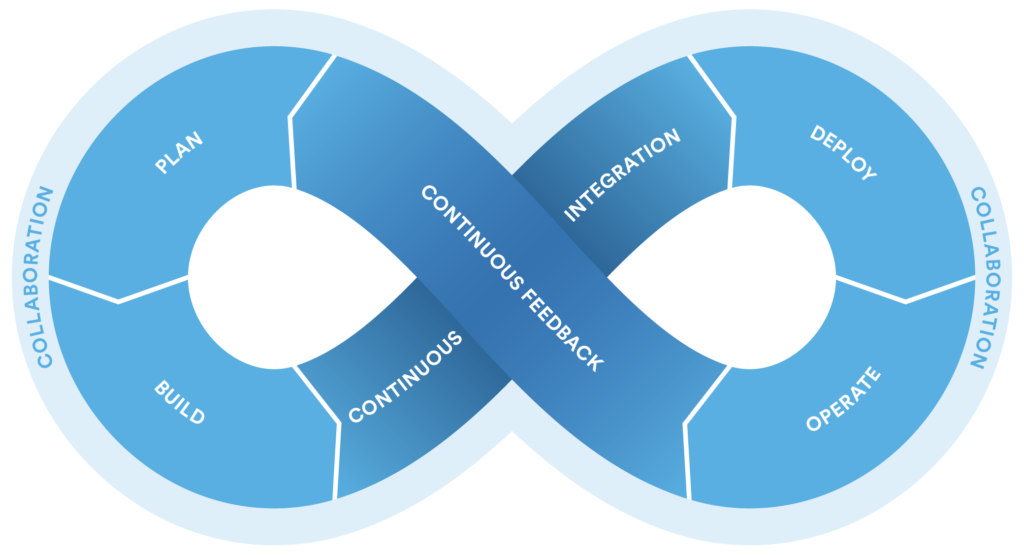
DevOps Culture
In all cases where culture change has seen success, we often note on support from the top-down, rather than a bottom-up approach. Like a lot of key decisions surrounding IT and business, there needs to be a firm flow of collaborative efforts from both sides to ensure seamless migration. Some of the biggest challenges arise in this stage of integration as corporate policies are known to separate IT and Business Development, when in theory, IT acts as a catalyst to Business Development.
So, what is DevOps and how can it help?
DevOps is a series of practises that automates the processes between software development and information technology teams, so that they can build, test and release software more reliably, and at a faster speed.
The concept of DevOps was formed in tune with building a culture of collaborative efforts between teams that have historically functioned in siloes. The inclusive benefits enthuse increased trust, faster software releases and the utterly desired requirement to see to and solve critical issues quickly and effectively. The ability to manage unplanned work is one of the key benefits and outlines the requirement for DevOps to be introduced purely to handle demand.
Thinking long-term, the key objective of DevOps is to improve not only the product in general but the product delivery and reliability too. Making changes that progress these goals are imperative to success and should always be kept in mind.
What are the best practises for culture change?
Empowering individuals allows the ability for people to make bold decisions and take risks without feeling compromised as DevOps is about experimenting, learning, adapting then experimenting again.
Permitting staff to make relevant decisions is a simple but important step to take as this can often hinder processes and complicate the uncomplicated. DevOps culture can only work if the people involved have the relevant permissions to make decisions without involving the wider team. This can improve the way issues are handled and ensure you deliver the best customer experience overall.
Clarity is essential – A core ethos of shared responsibility is imperative to thrive in a DevOps culture, developers need to both be empowered and obligated to take responsibility and ownership for any issues caused. This is the best way to learn and develop. The fear of failure can often discourage employees, but it is failure that enables improvement. And finally, Business Development needs and IT efforts need to be aligned and kept at the forefront of purpose.
The above-mentioned guidelines are known to significantly improve the odds of success of any DevOps and agile transformation. Large, successful change starts small and evolves through trial-and-error. As they say, failure to prepare is preparing for failure. The reason culture shifts are often viewed as difficult to achieve is that every business has their own unique business requirements, industry considerations and resource limitations, creating individual differences. Yet, each organization will have to figure out their own working dynamic in order to reap in the benefits by creating a thriving enivornment that DevOps requires.
